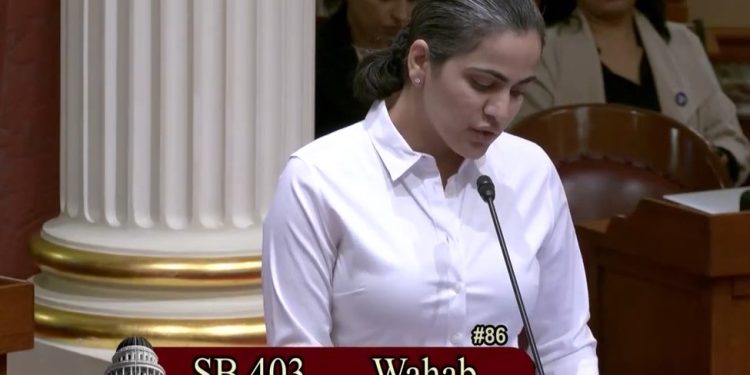The California State Senate has approved a bill, SB 403, that would prohibit caste-based discrimination in the state, making it the first US state to add caste as a protected category in its anti-discrimination laws.
The bill was passed with a 34-1 vote and has now been sent to the State House of Representatives for consideration before it can be signed into law by the Governor. The proposed legislation, introduced by California Senator Aisha Wahab, would add caste as a protected category under the Unruh Civil Rights Act, which guarantees equal treatment in all business establishments in California. Non-profit group Equality Lab is leading the push for the bill.
The recently passed SB 403 bill aims to safeguard individuals who have been subjected to caste-based discrimination and prejudice, providing explicit protections against systemic harm. This bill also enforces strict legal consequences for those who attempt to evade responsibility or consequences for promoting or participating in such acts of caste-based violence.
This bill comes as a landmark development, following the unanimous approval of the California Senate Judiciary Committee in April. Additionally, the Seattle City Council’s move to prohibit caste discrimination earlier this year, along with several resolutions recognising caste as a protected category passed by prominent organisations like the California Democratic Party, the California State University system, the Alphabet Workers Union, and technology giants such as Apple and Cisco have further cemented the significance of this bill.
Senator Aisha Wahab stated, “Caste systems are a social hierarchy that limits human potential, crushes spirits and causes intergenerational trauma spanning centuries. People suffer in silence, forever trapped in bondage. No education, marriage, wealth, nor generations can break the invisible shackles of caste imposed at birth.”
“Caste discrimination manifests as housing discrimination, unfair hiring practices, human trafficking, workplace bullying, and harassment, gender-based violence, rape, and murder. There simply is no place for this type of discrimination. SB 403 is a simple bill that does not harm nor target any specific community nor religion,” she added.
She further mentioned, “It clarifies that caste discrimination will not be tolerated in California under our Fair Employment and Housing Opportunity Act and the Unruh Civil Rights Act. It defines how caste systems may manifest and follows the Civil Rights Department’s authority for enforcement of violations. In fact, Cisco, the CSU system, Harvard, Seattle, and the California Democratic Party have all adopted explicit language to end caste discrimination.”
Seattle Council member Kshama Sawant, a key figure in the enactment of Seattle’s anti-caste discrimination law, has expressed support for the approval of SB 403 by the California State Senate. Sawant welcomed the development, stating, “The California Senate has voted to ban caste discrimination, following our historic victory in Seattle in February.”
She went on to credit the efforts of anti-caste activists, union members, working people, and her socialist council office for building a movement that resulted in the Seattle victory, which in turn generated momentum both nationally and internationally. Sawant concluded her statement by extending her solidarity to all those fighting against oppression in a capitalist system. The bill will now be forwarded to the Assembly for consideration.
Thenmozhi Soundararajan, the executive director of Equality Labs and author of The Trauma of Caste, expressed elation on behalf of all Dalit Californians and caste-oppressed individuals worldwide, following the passage of SB 403 by the California State Senate. She described the achievement as a victory that is the result of years of Dalit feminist organising and stated that the goal of making the state a safe place for the entire caste-oppressed community has only just begun.
While acknowledging that there is still a long road ahead with the bill, Soundararajan expressed her pride in the historical significance of the vote and conveyed her enthusiasm for collaborating with the California Assembly on this historic bill. She also expressed her gratitude to all the partners in Californians for Caste Equity who worked tirelessly to bring them this far.











